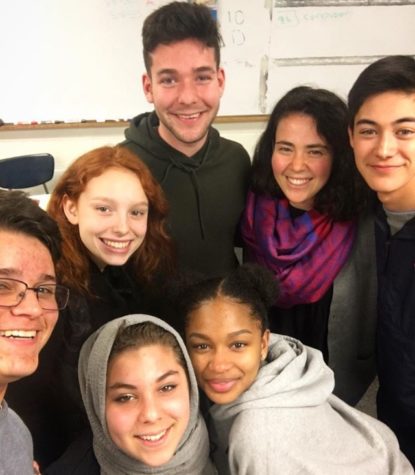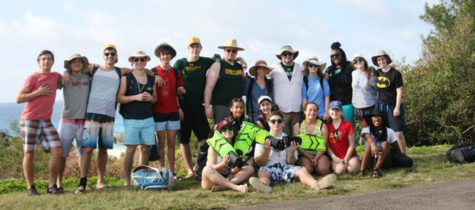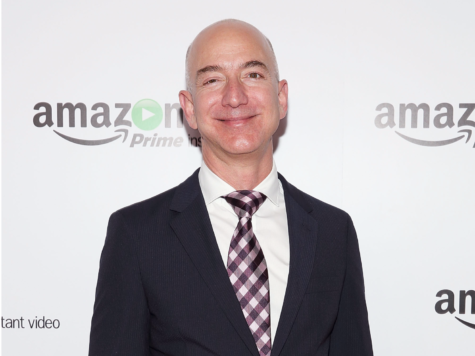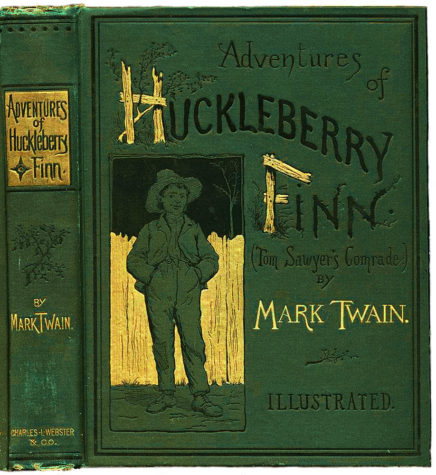Rejection When It Counts
March 8, 2018
If I could describe the college admissions process in one word it would be “overwhelming.” It makes you question everything – your achievements, failures, worth, future, and so much more. For some, the process will run more smoothly than for others but regardless, it is an undeniably stressful experience for all those involved. Everything you’ve done for the past four years of your life is under intense scrutiny. College is no longer a long-term goal but instead is a fast-approaching reality. As a second semester senior, now done with the admissions process, I wanted to share my own experience with it.
Come mid-junior year, I had approached the college process with certainty and ease. I knew what I wanted to major in, the type of college I wanted to go to and what I needed to do to get in. I had seen the world of secondary education through disparate lenses, from a big public school to a small Quaker school, so choosing a college would be easy–or so I had thought. Within a couple of months, however, I had found that none of the schools I thought I would have liked met my expectations. There was a flaw with each one that was too significant to be independent from my initial opinion of the school- Greek life was overly prevalent, the school was too big, it didn’t have my major, I didn’t like the location, etc. As the months went by, I became increasingly more nervous– was I ever going to find a school I liked?
Then, in the fall of my senior year, just as I was preparing to settle, I finally found a school that had everything I wanted. I poured all my hopes into getting into this school and I thought (almost to a point, assumed) that I would. For a period, I disregarded the other 11 schools I had applied to.
And then I didn’t. Fortuitously timed with Christmas, I received the proverbial thin envelope in the mail. People tried to comfort me by reminding me that college had become increasingly more competitive, that it wasn’t meant to be or that they would have accepted me if they had more room. None of it made the experience any easier.
I felt like a failure. I had been handed every single tool to succeed – college counselors, SAT tutors, a private school education – and I still failed. I thought about friends of mine who went through the entire college process without the advantages I had and were still seemingly more successful than me.
It’s a weird feeling. You believed you were a solid candidate for a school- maybe your essays and supplements were good, you had solid grades, your test scores were on par, you thought you were successful in high school. Then, the college process came around and completely warped your perspective of your achievements and thereby, of yourself.
I was scared of what people would think of me. How could I expect others’ perception of me to not be changed when I didn’t even see myself the same way? I thought people would doubt my intelligence and my work ethic. Yet on an intellectual level, I understood. I could be happy and successful at another school and a college rejection did not define me. On an emotional level, though, I couldn’t seem to find the silver lining in a situation that I knew wasn’t nearly as bad as I felt.
In hindsight, the experience made me realize some important things that hadn’t been so apparent or important to me before being rejected.
College is ultimately what one makes of it. It’s not where you go but what you do once you get there. I began to question why I was looking at a lot of the schools I was applying to. Many of them were schools where I thought opportunities would be handed to me. They were ones where I would simply prosper by osmosis because of the “name” of a school. I wish I had known sooner that it was up to me, not the school, to pursue and make opportunities for myself. It’s not where you go but what you do once you get there
Safety schools get an undeserved stigma. Throughout the entire process I think a lot of us seniors worried that we’d end up at one. I failed to see the good in going to one for a long time, realizing I might be a big fish in a small pond. With safety schools come increased opportunities to lead and stand out among other students, especially if there are honors colleges within the school. In those situations, you build your confidence and, as a result, take more risks academically and socially. At a reach school, you’re less inclined to prove yourself because you think the school speaks for itself. At a safety, however, you are constantly motivated by its lack of luster to improve and do more.
Getting rejected can be a really frustrating experience. You begin to believe that hard work doesn’t pay off (literally and figuratively). I wondered why I bothered taking challenging classes or studying at the expense of spending time with friends only to get rejected from my top choice. I questioned whether I was a victim of the admissions process’ notorious reputation of being arbitrary or if they really believed I wasn’t qualified. But it also made me reflect on my high school career a lot. I thought about how I could converse with people from Spanish speaking countries because of what I had learned in AP Spanish, I thought of what Dave Khan had taught me in AP Lit-I would forever be a better writer and more analytical reader, I thought about how I understood articles I read about politics because of AP government. Rejection wouldn’t mean those abilities would go away. With that in mind, was it really fair to view high school as a means to an end? It took me awhile to come to terms with the idea that one rejection shouldn’t undermine all that one has achieved and learned these past four years.
I was hesitant to write this article because I ended up appealing my rejection and the school reversed their decision. For a while I felt like I had betrayed the people who I had once shared this experience with and whose rejections had stuck. But my acceptance isn’t to say that I’ve now graduated from compassion. Most importantly though, I decided to share this experience of mine with one main intent; I hope that there is never a disconnect between the things that many people at this school are struggling with personally what we share publicly at the Wildezine.








Christina Song • Mar 14, 2018 at 1:39 pm
This is so well written, Amelia! I honestly felt the same way after I got my first rejection letter; like I could understand it in my head but I was emotionally hurt. I think the way you coped with those feelings is really smart. I also like what you said about the stigma of safety schools. Being the “big fish in a small pond”.
Alex Polón • Mar 14, 2018 at 1:33 pm
This was so insightful and mature! As a senior who has also gone through the college admissions process, I can vouch for everything said in this article, and I hope younger students remember Amelia’s honest words when going about their own college admissions processes.